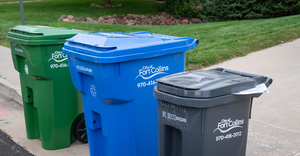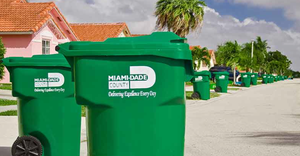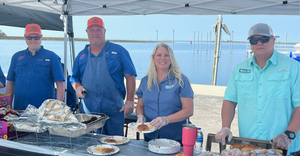Episode 78: Reimagining Waste & Sustainability with Covanta
In our latest episode of NothingWasted!, we chat with Derek Veenhof, executive VP of asset management at Covanta. Covanta helps a wide range of federal, municipal and commercial clients recover, recycle and re-imagine the byproducts of our daily lives through innovative waste and energy solutions. Their services aim to keep trash out of landfills, reduce greenhouse gases, and generate clean energy to support communities and environmental sustainability.
We spoke with Veenhof about being a good corporate citizen, creating closed-loop waste-to-energy systems and more.
Here’s a sneak peek into the discussion:
Waste360: Could you talk a little about the pandemic’s impact on the business and the industry as a whole
Veenhof: Like everybody else, we started the year with high expectations. But in February, we started making plans around “what if” scenarios. Of course a lot of our business is done on the I-95 corridor from Boston to D.C.—and that was starting to shut down in early March, when we also closed our corporate headquarters. In our business, we do a lot of scheduled outages—and typically March, April, and May are very intensive with work in the plants. Of course with COVID, that really threw a monkey wrench into those plans. What kind of protocols did we need to go through, etc.? We spent a lot of time thinking through what we needed to do to keep employees and contractors safe and ended up delaying a lot of the maintenance work. Now we have a lot of new protocols still in play at all of our facilities. I expect that to continue until there is some break in COVID.
Waste360: Covanta has been talking about environmental justice for a long time. Can you tell me more about that and how it impacts the communities you serve?
Veenhof: Certainly in this year, it’s been eye-opening in many respects. But environmental justice for us isn’t a new topic. In the late 1990s we bought an asset in Chester, Pennsylvania—and the company made a dedicated effort to engage with that community because they had a lot of questions and uncertainty. And ultimately we developed a good relationship with that community and key members in that community and the city of Chester. Our policy since about 2011 is focused on engagement, understanding, communication, transparency, and openness. As a company we have an obligation…people get pretty nervous about smoke stacks, so we want to address these concerns and get our emissions as low as possible. Whether you’re running a landfill, transfer station, recycling plant, or any other waste facility, there are a lot of eyes on you.
Waste360: Your process at Covanta has been described as a true closed loop. Can you tell us more about what that means?
Veenhof: We take the waste, and we put it into a sophisticated boiler with sophisticated combustion control; the carbon in that material gets combusted, and we use that combustion heat to generate steam. Either we sell steam directly to end-users or we convert it to electrons and sell it into the grid. After the combustion, you’re left with residual ash and post-combustion metals. And we’ve invested a lot in the recovery aspect of the residue, which will be increasingly important as part of a closed loop.
Waste360: Do you think energy-from-waste is going to become more widely adopted here in the U.S.?
Veenhof: As people get more comfortable with the science and the benefits on displacement from a greenhouse gas perspective, it’s a positive story—despite the fact we have smoke stacks. But there are some pretty big hurdles in North America. Energy is quite cheap, and we have abundant natural gas. So our product is being sold into a pretty cheap commodity market. And that’s a lot of space in North America from a land perspective. So landfills have generally been able to be cited close to where waste gets generated—but this is changing. In the Northeast in particular, landfill citing is increasing in complexity—and you have a significantly altered cost structure when you can no longer cite near waste centers. So there’s a time and place for energy-to-waste, and I think that time is really still coming.
Waste360: You have a proven record of working well with municipalities. Any advice you could share about collaboration and partnerships, which are a challenge for many?
Veenhof: Yes, the business is fundamentally based around our relationships with municipalities. My advice is that you have to have a fair element of patience around timing, what’s realistic to accomplish, and other aspects you don’t deal with as much in waste companies. There are election time frames; they have budgets and procurement rules, people who change roles…the big things you need are patience and vision. You’ve got to balance both sides of the equation—an ability to see what works on their side as well as what works on your side. It can be frustrating, but you have to approach it with an open mind and even an open heart.
#NothingWastedPodcast
About the Author
You May Also Like




